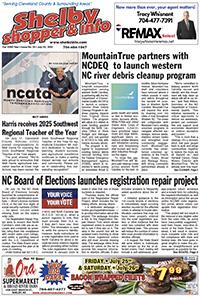| Gaskins & Moore Discuss Kennedy Assassination |
|
The life of President John F. Kennedy ended 50 years ago on Nov. 22, 1963 by an assassin‚s bullet, slightly less than three years from the day he first took office as 35th president of the United States. As the country prepares to commemorate the 50th anniversary of his death, many historians and political science experts are reviewing elements of his legacy that might have been recorded in history’s annals very differently if he had not been killed.
Gardner-Webb University professors Dr. Ben Gaskins (political science) and Dr. Joseph Moore (history) view JFK’s assassination as a turning point in the culture of American politics for a number of reasons. With the benefit of hindsight applied to issues like the Vietnam War, civil rights legislation, and the Watergate scandal˜all of which played out after Kennedy’s death, his presidency became symbolic of an era of widespread faith in government. Nov. 22, 1963 may very well be the last moment Americans trust their government implicitly,” Moore reflected. Whether or not Vietnam would have happened, it would have happened differently under a Kennedy administration.
Gaskins believes the assassination of JFK leads to many more questions about America’s fate without his leadership. We get a lot of the changes that come about in the 1960s either because of Kennedy’s assassination or because he wasn’t in office to maybe put America on a different path, he offered. Would Kennedy have led us to Vietnam the same way Johnson did? A lot of the big questions like that are unknowable.”
Pointing to Kennedy’s firsthand knowledge as a soldier in World War II, along with his experiences in office with the Bay of Pigs (failed Cuban invasion) and narrowly avoiding a nuclear war during the Cuban Missile Crisis in 1962, Moore suggests that Kennedy would have acted very differently with regard to the Vietnam War. The Bay of Pigs invasion had left a young President Kennedy deeply distrustful of Pentagon brass,” Moore said. From that moment forward, when you see Kennedy fundamentally distrusting the advice of his high level officials, fundamentally distrusting those who tell him he has to make this play in southeast Asia, saying to Walter Cronkite in 1963 that he didn‚t think the war was winnable. This is a man whose fundamental alignment is to de-escalate, not to escalate.
Following Kennedy’s shocking assassination, his successor, President Lyndon B. Johnson, was able to achieve JFK’s vision much faster than Kennedy could have done on his own. Johnson was able to pass civil rights legislation on Kennedy’s legacy, Gaskins shared. We see him almost mythologizing Kennedy’s death as a martyr to the cause of moving forward on this type of legislation.
Some of Kennedy’s ideas that became part of Johnson’s presidential achievements include the Civil Rights Bill of 1965, the Medicare amendment to the Social Security Act, federal money for education, and the Economic Opportunity Act to fight the war on poverty. The public relations moves that occur to protect Kennedy’s legacy are very successful and they are pitched to a country that wants to hear them, Moore said. The country wants to memorialize this young, energetic, new generation of leadership.
Within a decade of Kennedy’s death, mainstream America had shifted from an overall sense of the government being a trustworthy entity working for the greater good to it being an out-of-control and mismanaged machine that needed to be reined in at all costs. President Johnson’s role in Vietnam, the emergence of the Pentagon Papers, and the Watergate Scandal ushered America into a new era of distrust and suspicion of politicians, which continues today.
“The Kennedy legacy is defined by many things, oftentimes not the man himself,” Moore noted. The man himself was aware that he was living a life that was in peril. And he was trying in his own sometimes-flawed ways to make that life mean something. We’ll always live with the sense that he himself perhaps had that we want significance from his life and perhaps that is what drives the obsession with it today.”
When American politics are discussed, inevitably the term Kennedy dynasty is mentioned. In many ways, the Kennedys are a failed dynasty, Gaskins suggested. If not for the assassin’s bullet, Kennedy could have served two terms as president, handed the reins over to his brother Bobby and then Bobby could have served two terms and handed the reins over to Teddy. We could have had three decades of Kennedy’s in power. But in many ways, theirs is a what if dynasty.
Moore agreed. Pondering the what ifs? gives you a moment to believe things could have been better, he reflected. And that has to be a part of the recipe of any legacy--a sense that there was something worth keeping.
Dr. Ben Gaskins is assistant professor of political science at Gardner-Webb University. Gaskins specializes in American and comparative politics. He has teaching and research interests in media and politics, political behavior, public opinion, and experimental political science.
Dr. Joseph Moore is assistant professor of history at Gardner-Webb University. Moore‚s work examines early America, especially issues of race, religion and slavery in the U.S., Scotland, and Ireland. He teaches courses on Colonial and Revolutionary America, Slavery in the Atlantic, and the American Civil Rights movement.
|
|
Printer-friendly format
|
|
|
| Digital Edition |
View This Week's Digital Edition!

|
| Advertisements |
|
|
| |
|





